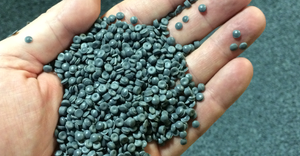Toxic Trash
TOXIC TRASH! WE'VE ALL HEARD activist groups warning us that landfilled electronic products will create toxic leachate when lead seeps out of the products into the groundwater. Those groups claim that landfills are full of other toxic products such as food and liquid wastes that will mix with discarded electronics to create poisonous leachate. The groups offer two alternatives: either encapsulate our electronics in plastic and bury them in hazardous waste landfills, or recycle all of them, regardless of cost.
However, when activist groups are asked for proof that lead or other hazardous materials have or can leach from landfilled e-waste into groundwater, they fall silent. Oh sure, they will point to test results from the Toxicity Characteristics Leaching Procedure (TCLP) that show that lead (but not mercury or other toxic constituents) can leach from these materials under laboratory test conditions. But they can't prove that this actually happens with landfilled e-waste.
What we have here is a clash of fearmongering versus science. Yes, lead can be lethal if handled improperly. Yes, many electronic products will fail the TCLP for lead.
The real issue, however, is if e-waste is hazardous in Subtitle D landfills. And the answer is no, because the TCLP does not predict real-world conditions. The TCLP requires that the tested product be ground up into itty-bitty pieces and then placed in an acid bath for 18 hours. Neither garbage trucks nor landfills grind up trash, and the pH of a landfill is neutral, not acidic.
As it turns out, even the EPA has doubts about the TCLP. EPA's Science Advisory Board has warned twice that the TCLP, which gives the worst-case scenario, is applied too broadly. EPA testified at a recent U.S. House of Representatives hearing that landfills that accept electronic products with cathode ray tubes for disposal have kept contaminants from harming the environment because of the neutral pH of landfills and leachate collection systems.
In addition, a recent Canadian study on portable electronic products showed that the possibility of significant amounts of heavy metals escaping from modern, well-maintained landfills is quite low. Maybe the hazards of e-waste disposal have been grossly exaggerated.
In order to counter the demagogic claims about e-waste disposal, the CEOs of the Solid Waste Association of North America (SWANA) and the National Solid Wastes Management Association (NSWMA) sent a letter to the chairmen of the U.S. House and Senate committees that are holding e-waste hearings. In the letter, the two CEOs strongly endorsed recycling as the first priority for electronics but also assured Congress that these products can be safely managed in Subtitle D landfills.
Yes, we should recycle electronic products. But we will recycle most effectively if our recycling programs are based on sound policy and designed for the right reasons. Of course, we should eliminate the use of toxic materials whenever possible, and we also should learn how to best collect and process electronic materials for recycling. However, we should not ban e-waste disposal unless we have sound data that support such a ban. Public sector budgets can't afford new recycling mandates.
Most importantly, let's stop the demagogic rhetoric about toxic trash. The real toxic trash is the exaggerated claims of toxic leachate and its potential harm.
Opinions in this column do not necessarily reflect those of the National Solid Wastes Management Association or the EIA. E-mail the author at: [email protected]
The columnist is state programs director for the Environmental Industry Associations, Washington, D.C.
About the Author
You May Also Like




